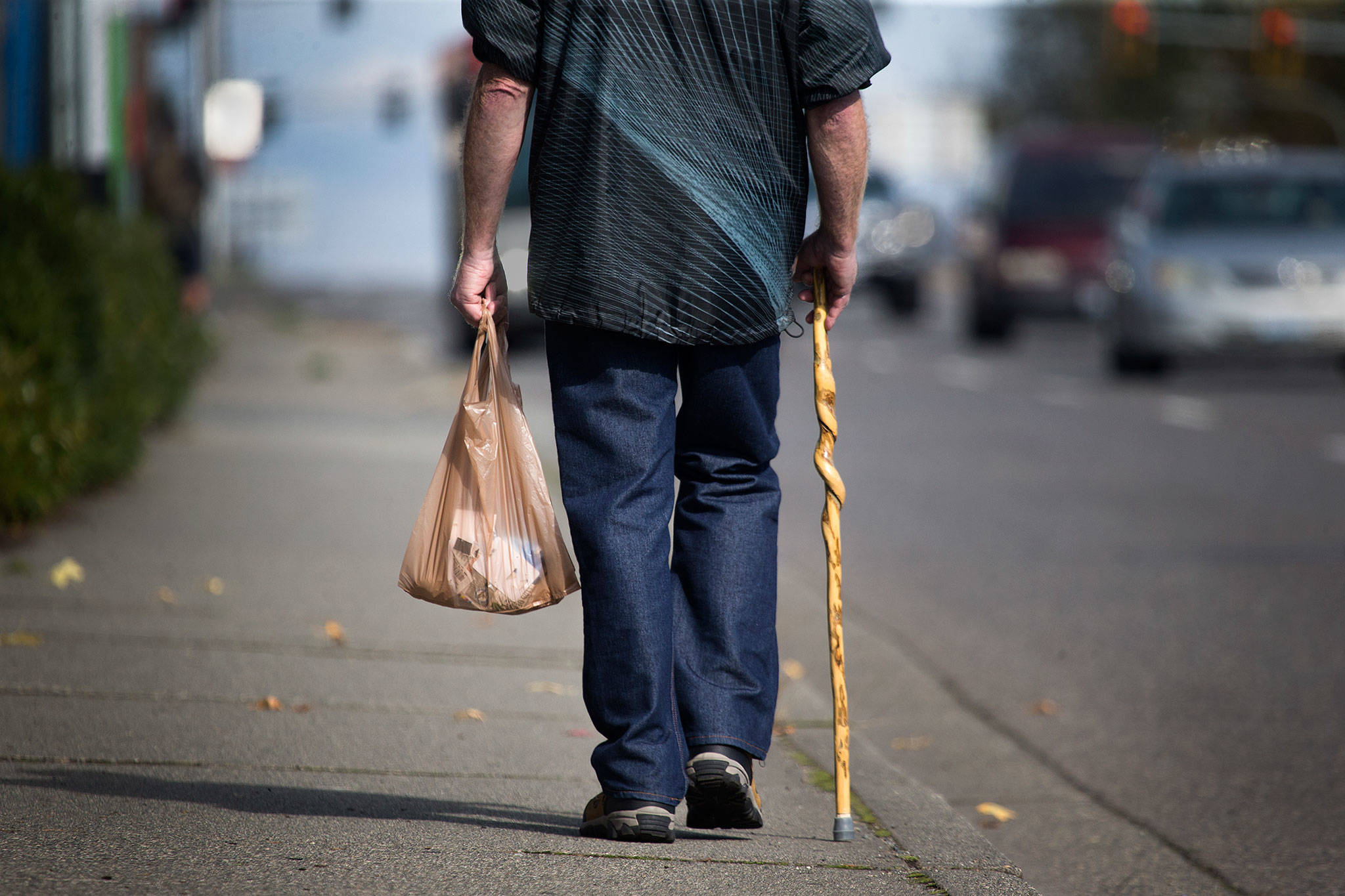OLYMPIA — As an Edmonds City Councilman, Strom Peterson led the effort to outlaw single-use plastic grocery bags in the city.
That was 2009 and Edmonds was the first municipality in the state to enact such a ban.
Now, as he prepares for his third term in the Legislature, the Democratic representative is helping push through a prohibition on the bags throughout Washington.
“It is time to do it statewide. It just makes sense,” he said.
Peterson and Sen. Kevin Ranker, D-Orcas Island, are putting the final touches on legislation to be introduced in each chamber when the 2019 session gets underway in January. Environmental and conservation groups are backing it, along with an association representing major grocers.
“Right now, there are more than 86 million metric tons of plastic in our oceans and the equivalent of five grocery bags of plastic trash for every foot of coastline spills into the oceans annually,” Ranker said in a statement issued at a recent news conference.
In addition to damaging the environment, Peterson said single-use bags can gum up recycling efforts in multiple ways.
“If these plastic bags get caught up in machines in Seattle, they have to shut down the recycling operation to get them out,” he said.
Also, China has tightened its rules for handling of recycling materials from the United States. If a plastic bag is discovered in a load of those materials, the entire batch will be deemed contaminated and put in a landfill, he said.
“They can have a really detrimental effect on the recycling industry,” he said.
As proposed, use of plastic carryout bags would be prohibited with the ban to be phased in to give businesses time to use up existing stock. Paper carry-out bags would be available at a cost of 10 cents apiece, though they would be available for free for recipients of food stamps. The store would keep the fee.
Small plastic bags used for items such as produce, meat, fish, flowers as well as newspapers, dry cleaning and bakery goods would be exempt from the ban.
What’s getting drawn up is similar to what’s already in force in Edmonds, Mukilteo, Shoreline, Quil Ceda Village and 19 other communities around the state.
Everett may soon join their ranks. A proposal brought to the City Council by 350 Everett, a local environmental group, would bar retailers and supermarkets from handing out plastic bags at checkout. Shoppers would be able to purchase a paper one or a thicker reusable plastic bag for a nickel apiece under the proposal. Councilmembers are set to vote on the ordinance Wednesday.
However, what state lawmakers are crafting would do away with those local ordinances to create a uniform set of rules, Peterson said. This statewide preemption helped secure support of large-scale grocers looking for consistency in regulations, he said.
“In our experience, our customers support reducing plastic bags,” said Sara Osborne, public affairs director for Safeway and Albertsons in a statement issued at this week’s news conference. “In our bag ban jurisdictions, customers adapted quickly to using their own bags and understand the reasoning to do so.”
Washington lawmakers have repeatedly tried and failed to impose statewide restrictions on single-use plastic bags. California is currently the only state with a statewide prohibition on the books.
Although bans are gaining greater public acceptance, their environmental value continues to have critics like Todd Myers, who heads the Center for the Environment for the politically conservative Washington Policy Center.
He has consistently argued that research shows producing reusable bags made of products like cotton — commonly pushed as alternatives for shoppers — has a greater negative impact on the environment than the targeted plastic bags.
Use of biodegradable plastic bags should be promoted by the state, he has said.
“Ironically, banning plastic bags and requiring grocery stores to switch to paper or reusable bags is likely to increase overall environmental damage and even damage water quality,” he wrote in 2013 in opposition to a House bill.
That legislation never received a hearing.
The 2019 legislative session will convene Jan. 14 and is scheduled to last 105 days.
Jerry Cornfield: 360-352-8623; jcornfield@herald net.com. Twitter: @dospueblos.
Talk to us
> Give us your news tips.
> Send us a letter to the editor.
> More Herald contact information.

























